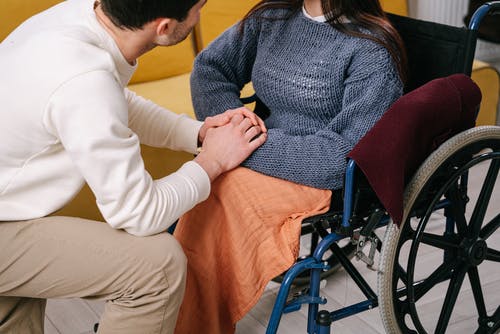There are many options when it comes to disabled care. In-home, live-in, or home health services are available. Many organizations also host networking opportunities that allow the disabled community to meet and share their experiences, as well as help them find the best care for their loved ones. Read on to learn more about the different types of disabled care services available. Here are three of our most popular options. Whether your loved one needs in-home care or live-in care, we can help you find the right solution.
Home care
You must understand the details of home care agencies before you consider hiring them. The best option will be customized to the needs of the disabled individual. Depending on their level of disability, they may need more physical care. Other services may be needed only for companionship and reminders for medication. It is important to choose a homecare agency that provides personalized care. This will ensure that your loved one’s caregivers are the right fit.
There are thousands upon thousands of non-medical in home care agencies across the U.S. A disability care agency is the best choice to ensure quality. These agencies employ caregivers who are trained to provide home health care to individuals with a range of physical or disability support melbourne. The following options are available if you are unsure how much care you will require.
In-home care
Medicaid isn’t paying in home care providers and many Iowans are left without pay. In-home care costs are significantly lower than those in nursing homes. However, billing problems are a result of the privatization project. Many home care workers have gone weeks, or even months without being paid. Even though in-home caregivers are paid $9-12 an hour, even one missed paycheck can have catastrophic consequences.
It is becoming more difficult to find in-home care for disabled persons because fewer Medicaid beneficiaries are able to afford it. But it is possible to make this service more accessible. Kansas, along with several other states, have begun to experiment with this service, but they have not made it available to a larger population. The federal government has not yet come up with a plan to cover all costs.
Live in care
Some families will offer live-in care to their disabled family members. Others will prefer their adult children to stay at home with their parents. Both parents can have a caregiver visit the house to provide respite care. Respite care allows disabled people to have a caregiver visit their home for a limited time. A caregiver can also visit for just a few hours each day or stay overnight.
Networking events
Disability-related organizations are encouraged to attend networking events that promote access and inclusion for people with disabilities. These meetings are valuable for caregivers and employers looking to hire new employees. The event will feature over 40 organizations that provide services for people with disabilities. This includes state agencies such the Division of Developmental Disabilities, Vocational Rehabilitation Services and Medicaid. There will also be private organizations such Jepy House, Friendship House, and others.
Management Institutes by AHEAD take place in warm weather in February. The conferences provide excellent professional opportunities and are a welcome break from winter’s cold. There are four to five AHEAD Institutes each year. One Institute is for new disability resource personnel, while the other is for experienced professionals. These conferences feature nationally-recognized presenters and offer many networking opportunities. These conferences can be a great way to connect with other disability professionals, share best practices and learn about new innovations in the field.
Access to mainstream health care
There are many factors that can impact the health and care of disabled persons. Inequities in the health care system affect disabled people in many ways. Identifying practical solutions is essential to improving the health and care of people with disabilities. To identify these issues and discuss practical solutions, the NCD convened a Summit on Health Care for People with Disabilities. This report examines the current state of health-care for people with disabilities.
This awareness has been heightened by increasing national awareness about the inequalities in health care. Particularly disabled people face many of the same problems. In rural areas, some people face longer wait times for health services, inaccessible buildings, and a lack of communication between health care professionals. According to a recent report from the Council for Intellectual Disability, 42% of people with intellectual disabilities are not diagnosed for their medical conditions. A lack of data is also available about the use by people with disabilities of mainstream health services.

